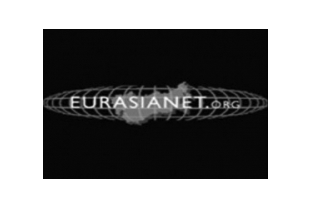Foreignpress.ge
Molly Corso, Eurasia.net
Georgia’s main regulatory authority for radio and television says preference in the granting of broadcast licenses will be given to applicants that seek to entertain, rather than inform. Some observers in Tbilisi see the announcement as a government attempt to manipulate upcoming presidential and legislative elections.
The Georgian National Communications Commission (GNCC) announced its new policy on April 18, basing its decision on public opinion surveys conducted over the past two years by BCG Research, a local Georgian polling company. BCG also has acted as a pollster for President Mikheil Saakashvili’s governing United National Movement. Data provided by the GNCC showed that 28.5 percent of 3,000 citizens who participated in face-to-face interviews felt there was a “deficit” of music programming -- compared to just 10.5 percent who complained about a lack of public affairs programming and 11.3 percent who believed there was not enough news on radio and television.
The announcement is stoking concern among civil society activists about the presidential and parliamentary votes in 2013. They worry specifically that Saakashvili’s administration wants to control the flow of information during the run-up to the balloting.
“I think our major concern is that they can use this [BCG] survey to argue that license seekers who would like to offer educational or … current affairs program[ming] might be turned down,” said Mathias Huter, a senior media analyst and program manager at anticorruption watchdog Transparency International in Tbilisi.
By law, public opinion research is supposed to help determine GNCC “priorities” for awarding television and radio licenses. The last such polling was conducted in 2004.
Allegations of pro-government political bias have long dogged Georgian broadcast media outlets; similar allegations have also been aimed at the GNCC, whose five members are Saakashvili appointees.
Kakhi Qurashvili, head of the GNCC’s Legal Department, downplayed the idea that the BCG data will prompt radical changes in Georgia’s media landscape. Broadcast licenses are divided into two categories – so-called “common” licenses for stations with general programming, and specialized licenses for stations that broadcast only one sort of programming, Qurashvili explained. Cross-category competition for licenses does not exist at present. In theory, that means general programming stations with news programs that apply for a license will not be at a disadvantage against, say, a music video channel. “They are not competitors. This is very important,” said Qurashvili.
Qurashvili also stressed that the new GNCC priorities are applicable only to new broadcast license applicants, not to existing license holders. The emphasis on entertainment nevertheless means that if only one frequency is available, competition between the “common” and “specialized” categories is possible.
Media law expert Tamar Kordzaia, a free speech activist for the Georgian Young Lawyers Association, sees a political motivation in the policy shift. Kordzaia predicted that applicants seeking specialized licenses for news-oriented stations would be rejected “because they [authorities] have determined that information programs do not meet the priorities for the next two years. “
Currently, some 35 applicants have applied for an unspecified number of TV and radio frequencies. The GNCC has given no indication when it might rule on the pending applications. Representatives from one applicant reached by EurasiaNet.org, regional radio broadcaster, Hereti, expressed doubts that its application would be approved, primarily for political reasons. In the past, the GNCC has rejected allegations of political bias.
Opposition MPs ridiculed the GNCC announcement. Levan Vepkhvadze, an MP for the Christian Democrats and a former TV news producer, joked that pro-government Rustavi2 news anchors may soon be forced to acts as VJs.
Some government critics questioned the research data upon which the GNCC’s “entertainment first” priority rests. Overall, BCG Research gathered data from respondents in 23 zones used by the GNCC to determine frequencies. Responses were weighed “proportionally” to the population in each zone, but BCG research executive Rusudan Nadiradze could not elaborate on the method used.
The data cited by GNCC appears to come from less than one-third of the total 9,500 respondents surveyed in face-to-face interviews. Reasons for the data selection were not clear. Polling of 6,500 respondents began in November 2008; a second round of questioning of 3,000 respondents came in December 2009, when TV stations generally increase entertainment programming for the holiday season. The timing has raised concerns that respondents may have been primed for entertainment, rather than hard-hitting news.
The Georgian Young Lawyers Association has filed a request for more information on polling methods under a freedom of information act, including a full copy of the questions and an overview of the methodology used to select respondents, Kordzaia said.
The GNCC’s Qurashvili described the polling data’s news-bashing results “a pity,” but said that the Commission stands by the quality of the survey.




